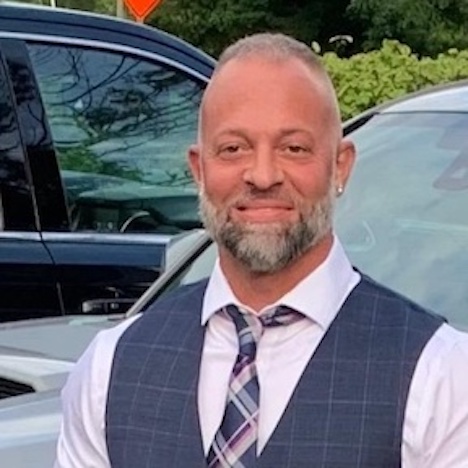Matty Prawicka, MSW, coach’s clients who struggle with behavioral issues and their loved ones, working with the family as a whole. We spoke with Matty about what it’s like to support families while living with them on a 24/7 basis.
RCNY: Thanks so much for taking the time to talk to us today. What’s your first step when you’re introduced to a new family?
MP: The first step is always to get as much information as possible. It is important that this information comes from both the family and team of professionals currently working with the child as well as from my own observations. The more background information you receive the better equipped you are to handle each individual situation. In the very early stages, I’m typically very quiet, observing the client, the environment, and family dynamic to obtain my own perspective of their struggles. There are times, when I’ve read the reports and made a plan and after observing the whole picture, I have to change the entire approach right away.
By observing I get what the issues are. Whether it’s behavior, or if they’re paralyzed by fear, (either parent or child) and that’s what informs my actions.
RCNY: What’s the most important thing in that first meeting?
MP: Getting the parent’s trust. If they’re not on board with what you’re doing then you’re working with two problems. I’ll sit down with the parents and explain what’s happening and what’s going to happen. I say to the parents: Don’t focus on anything but getting your child to speak to me. You’re not getting them to agree to get help, they won’t do that, that’s not happening. Just get them to agree to see me and then I can come in and do my part.
I explain to the family that there will be a lot more downs than ups in the beginning of this process. It isn’t easy to go through, but don’t be down about the downs at all because it’s a perfect coaching opportunity.
And, it’s really important to get the parents to be on the same page with the team and with each other. If they are not willing to take the recommendations from the team it will never work. Often parents want us to do things their way and that doesn’t work. The difference it makes when the parents agree and allow me to do my job the way I know I can is indescribable.
RCNY: How do you start with the client?
MP: Just like I mentioned earlier, the first step is always to observe. I observe their behaviors and in a sense take their emotional “temperature,” by observing their facial expressions, and physical changes in response to emotions. By doing this it allows me to break down negative behaviors that prevent them from getting the help they need.
For example, if the client’s behavior is bad, a little spoiled, and they don’t know what consequences are you have to break that. You have to establish rules and boundaries. So when I start with them, I observe, get as much information as possible. Then a plan gets put together. I do the pushing and pulling to figure out what’s going to work best. It’s almost like fishing, you don’t want to yank on the rod too quickly because you don’t want to snap the line.
It’s really learning what works for the individual client in each situation.
RCNY: That’s great. Now you’re working one on one with the client, what’s that like?
MP: That’s the difference with a coach, I’m living with the family 24/7 and absorbing all this information about the family dynamic, as well as socially with school and friends. You can’t get any more involved than when you’re living with the family 24/7. It’s almost surprising to the family that you, the coach, can understand their child better than family, friends, social workers, and therapists who have known and worked with them for years.
My approach when I am working with a client one on one who is struggling to succeed is that I encourage them to help themselves. I break down goals into tiny steps so they can achieve little wins often, pointing out all the positive outcomes along the way. I have a client with OCD who cannot leave the house, a little win is just getting him to walk outside onto the porch. I call them All the little wins.
Then the team can sit down and discuss what happened, what went well, what we could do differently. Little setbacks are good, they’re crucial for growth.
The rest is based on momentum; they can’t be stagnant. Keeping up the momentum keeps up the motivation. You’d think that when they’re working and they have these little wins they’d be encouraged to keep going. It doesn’t always work like that, they feel they can coast. I don’t let them coast. When they achieve an accomplishment, I keep them going to the next step. I know when to hug them and encourage them and know when to be tough and tell them to step it up. I gauge their behavior to see if they’re able to handle more. Like in pro sports, some guys you have to get on them and be a little more firm. Then others you have to build back up more than anything. And some you have to do both.
RCNY: Do you have a trick for communicating with adolescent clients?
MP: I believe in being very, very straight forward and direct. Sometimes parents will avoid saying certain things to avoid conflicts or spare feelings because when their child acts out the behavior is just too much for them to handle. I work on teaching them to handle it better rather than avoiding it.
That’s why it’s good to have a coach. I’m not family, the child can’t manipulate me, we don’t have years and years of this loving relationship with them. We want to come in and improve that specific situation. Once we take control of the situation, then we stabilize the behavior and can begin to do the work. This goes hand in hand with observing and learning what the issues are, then making and incorporating the plan, and teaching the parents what they can and cannot do.
I come in and do the heavy lifting, reestablish the rules and discipline for the parents and the kids. I say to the parents let me get this behavior under control and once that gets established I can show you what to do and what not to do.
RCNY: What’s your superpower?
MP: Connecting with people. For what ever reason I have a knack for getting all the parties involved comfortable. Comfortable enough to tell me things. I hear it all the time, “I’ve told you stuff I’ve never told anyone”. This happens with the person struggling as well as the parents.
RCNY: That’s terrific, thank you for spending your time with us today.
If you would like more information about Matty or any of our coaches, you can reach out to Cindy Feinberg, President of The Recovery Coach NY:
Phone or text: 631-921-4085
Email: recoverycoachcindy@gmail.com
Through her website: www.therecoverycoachny.com






Leave A Comment